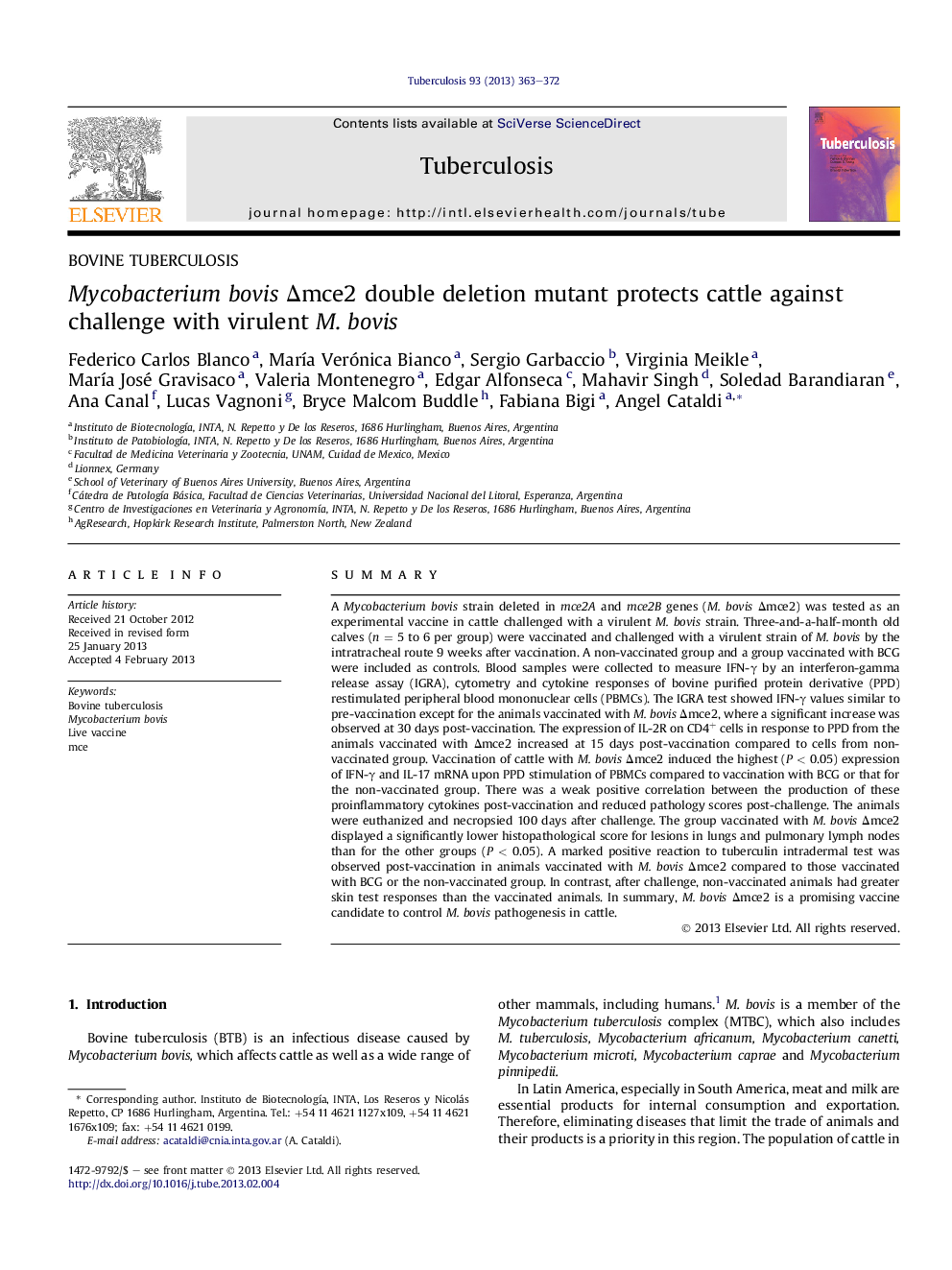| Article ID | Journal | Published Year | Pages | File Type |
|---|---|---|---|---|
| 10962051 | Tuberculosis | 2013 | 10 Pages |
Abstract
A Mycobacterium bovis strain deleted in mce2A and mce2B genes (M. bovis Îmce2) was tested as an experimental vaccine in cattle challenged with a virulent M. bovis strain. Three-and-a-half-month old calves (n = 5 to 6 per group) were vaccinated and challenged with a virulent strain of M. bovis by the intratracheal route 9 weeks after vaccination. A non-vaccinated group and a group vaccinated with BCG were included as controls. Blood samples were collected to measure IFN-γ by an interferon-gamma release assay (IGRA), cytometry and cytokine responses of bovine purified protein derivative (PPD) restimulated peripheral blood mononuclear cells (PBMCs). The IGRA test showed IFN-γ values similar to pre-vaccination except for the animals vaccinated with M. bovis Îmce2, where a significant increase was observed at 30 days post-vaccination. The expression of IL-2R on CD4+ cells in response to PPD from the animals vaccinated with Îmce2 increased at 15 days post-vaccination compared to cells from non-vaccinated group. Vaccination of cattle with M. bovis Îmce2 induced the highest (P < 0.05) expression of IFN-γ and IL-17 mRNA upon PPD stimulation of PBMCs compared to vaccination with BCG or that for the non-vaccinated group. There was a weak positive correlation between the production of these proinflammatory cytokines post-vaccination and reduced pathology scores post-challenge. The animals were euthanized and necropsied 100 days after challenge. The group vaccinated with M. bovis Îmce2 displayed a significantly lower histopathological score for lesions in lungs and pulmonary lymph nodes than for the other groups (P < 0.05). A marked positive reaction to tuberculin intradermal test was observed post-vaccination in animals vaccinated with M. bovis Îmce2 compared to those vaccinated with BCG or the non-vaccinated group. In contrast, after challenge, non-vaccinated animals had greater skin test responses than the vaccinated animals. In summary, M. bovis Îmce2 is a promising vaccine candidate to control M. bovis pathogenesis in cattle.
Related Topics
Life Sciences
Immunology and Microbiology
Applied Microbiology and Biotechnology
Authors
Federico Carlos Blanco, MarÃa Verónica Bianco, Sergio Garbaccio, Virginia Meikle, MarÃa José Gravisaco, Valeria Montenegro, Edgar Alfonseca, Mahavir Singh, Soledad Barandiaran, Ana Canal, Lucas Vagnoni, Bryce Malcom Buddle, Fabiana Bigi,
